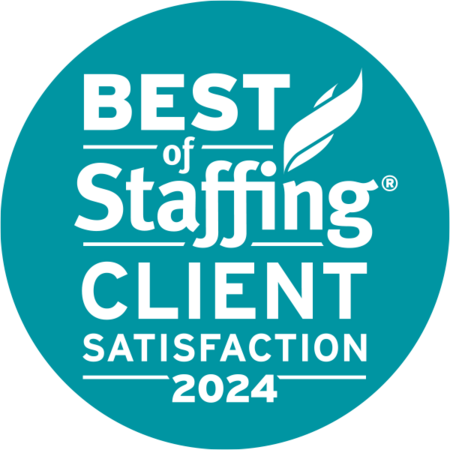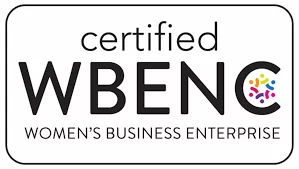The revolving door of Gen-Z talent is a growing challenge. Increasingly, a substantial portion of the workforce’s youngest employees have made the bold choice to quit their jobs without having another position securely lined up. This phenomenon reflects a mindset shift that Accounting and Finance leaders must understand to attract and retain top Gen-Z talent successfully.
While past generations prioritized job security and financial stability above all else, Gen-Zers bring a markedly different perspective. They came of age amid several culture-shaping events that now drive their values and expectations around work.
Gen-Z, born in the late ’90s/early 2000s, experienced the Great Recession’s economic turmoil during childhood. This instilled a resistance to blindly trusting institutions or pursuing conventional career paths. Growing up in a profoundly digital era further elevated expectations around workplace flexibility, collaboration, and transparency.
They also entered the job market amid the COVID pandemic — a significant factor that other generations sometimes fail to take into account. According to the Pew Research Center, a staggering amount of Gen-Zers accepted full-time jobs and were laid off or had starts or offers pulled just a few months later. Having seen how companies responded to instability, some hiring specialists say Gen-Z feels less corporate loyalty and now models that behavior in their own approaches to job stability and upward mobility.
Being confronted with the uncertainty of COVID caused Gen-Z to more deeply prioritize mental health, purpose, and work-life balance over purely monetary motivations during the Great Re-evaluation, the Financial Times reported. Unlike older employees who may cling to ingrained approaches, Gen-Z feels empowered to relentlessly pursue roles and environments better aligned with their values.
While their risk appetite for quitting without having another job lined up may seem unsettling, forward-thinking organizations must adapt to position themselves as employers of choice with the younger generation. Dismissing Gen-Z’s mindset as naive or entitled is inadvisable and will hinder hiring and retention efforts. With unparalleled tech savviness and a drive to create positive change, this generation represents the future of workforce leadership.

Clashing Perspectives on Job Stability and Loyalty
While the younger generation’s embrace of career flexibility aligns with their values, this mindset frequently raises red flags for more tenured professionals. Older generations who remain committed to traditional ideals of climbing a vertical career ladder and prioritizing long-term job security struggle to understand Gen-Z’s perceived wanderlust. This has become a hot-button issue for Accounting and Finance hiring managers during the job interview process.
Gen-Z’s openness to lateral job movements or taking career breaks can seem baffling at best and disloyal at worst:
- Why would talented young employees abandon promising career trajectories and forfeit upward momentum?
- Why risk the potential impact on one’s personal balance sheet when not having another job lined up?
- Did they really quit?
- What does this say about their motivation?
The disconnect lies in deeply rooted differences around how professional fulfillment and success are defined. While mid-career and senior employees may equate extended tenure as the main barometer of commitment, Gen-Z measures career satisfaction more holistically.
Gen-Z prioritizes roles that enrich their lives across mental, emotional, and experiential dimensions. Security is defined less by permanent attachment to one employer, and more by amassing diverse experiences and continually aligning with their values. This expansive view of what constitutes a “successful” professional journey may alarm more traditional-minded managers. They may perceive Gen-Z’s open embrace of continually exploring newer pastures as perpetual restlessness — failing to appreciate the intentionality Gen-Z applies to proactively recalibrating their cultural fit. Overcoming this disconnect requires recognizing that Gen-Z’s self-directed path reflects an adaptive strategy to thrive amid more dynamic, uncertain career landscapes.
Another important factor is the cost of living in Southern California. Some prospective employers question why Gen-Zers prefer moving back in with their parents over remaining stuck in unfulfilling jobs solely to cover high living costs. Again, this decision reflects their prioritization of personal well-being over financial independence with career success. With soaring SoCal rent and homeownership costs outpacing salary growth, staying in an unsatisfying role just to keep up with expenses is an unacceptable trade-off for many young workers.
Future-Proofing Your Workforce: Why Gen-Z is a Catalyst
While managing Gen-Z’s unique career expectations requires an open mindset, the payoff for getting it right is tremendous. This generation possesses vital skills and perspectives that Accounting and Finance leaders should be eager to integrate within their teams and strategies. Dismissing Gen-Z is leaving transformative potential untapped.
Gen-Zers are natives of the digital frontier which has accelerated globalization, disrupted industries, and forever altered how we live, work, and connect. Gen-Z’s proficiency with emerging technologies and data fluency are generational assets that leading firms must cultivate.
What’s more, their inclusive attitudes toward identities, cultures, and ideological differences allow Gen-Z to identify transformative solutions. As globalization further diversifies markets and opportunities, this generation’s broader lens is a mission-critical competitive advantage. Their appetite for creating positive change may be Accounting and Finance’s most vital resource for ensuring sustainability and relevance.
While bridging generational divides requires intentionality on all sides, writing off Gen-Z equates to leaving value on the table. Firms able to thoughtfully integrate and empower this generation’s unique talents won’t just thrive in the modern landscape — they will help shape its trajectory for decades to come.

Turning a Talent Shortage into a Pipeline
In 2022 more than 50.5 million people quit their jobs, with Gen-Z comprising 35% of the Great Resignation, Fortune reported. The need to thoughtfully integrate Gen-Z is heightened by the acute talent scarcity in the field. For years, fewer graduates have pursued careers in these areas, favoring trendier professions in technology or entrepreneurship. The lack of qualified professionals poses a threat that forward-thinking firms must address head-on.
Accounting and finance leaders must recalibrate how they identify, assess, and nurture Gen-Z professionals. This requires suspending traditional biases around quitting without having another job lined up and instead objectively evaluating candidates’ talents, motivations, and accomplishments to date.
A crucial first step is meeting Gen-Z on their terms during the interview process. Rather than interrogating why someone left a role without securing the next opportunity, hiring managers should approach with curiosity. Ask probing yet non-judgmental questions to genuinely understand the context behind each candidate’s career moves and the intentionality behind their choices.
While their reasoning may differ from your own career decisions, dismissing it as misguided or disloyal is counterproductive.
The priority should be evaluating their inherent talents, technical acumen, cognitive capabilities, and passion for the work itself. Gen-Zer’s frequent role rotations may even enable them to accumulate valuable cross-functional exposure at an accelerated pace.
Finally, as Gen Z professionals join your organization, work intentionally to provide an environment optimized for their priorities. Offer robust learning opportunities, cutting-edge skills development, and clear pathways for growth. Be transparent about social impact and purposeful work.
The Evolving Nature of Today’s Workforce
At its core, Gen-Z’s approach to careers reflects a fundamental shift in how the workforce itself is evolving. Just as professionals had to recalibrate for millennials’ blurring of work-life boundaries and demands for greater purpose years ago, today’s hiring landscape requires another realignment.
This generation’s fluid mindset toward jobs and willingness to course-correct their path is simply the new reality organizations must embrace. Gen-Z’s priorities around holistic well-being, values alignment, and continual growth and development aren’t just idealistic: they are bedrock expectations of the incoming workforce.
Given the scarcity of skilled accounting and finance professionals, Gen-Z represents a pipeline of future leadership that firms cannot afford to alienate or ignore. With abundant career options across the field, Gen-Z candidates hold significant leverage in choosing environments that actively resonate with their aspirations.
It’s time to evolve antiquated hiring and retention strategies to meet the Gen-Z workforce who can help advance your firm’s longevity.
RELATED ARTICLES
THE DISINTEGRATION OF PROFESSIONAL DECORUM IN THE HIRING PROCESS





